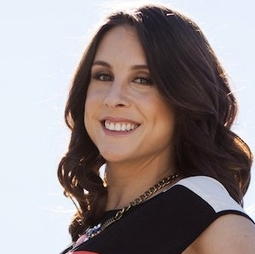There are plenty of opportunities to develop your career within the professional world; you could take a class, learn a new skill, or volunteer for a new, challenging project at work. And if those things go well, chances are, it will give you a nice boost of confidence.
But there is an opportunity for professional development and building confidence in your personal world that you may be missing—and that’s affirmations.
Daily affirmations are positive, affirming (hence the name!) statements that you repeat to yourself on a daily basis to influence your thoughts and behaviors. The idea is, the more you repeat the affirmation, the more you’ll start to believe it—and, more importantly, to act as if you believe it. And while they may seem a bit out-of-the-box, the truth is, affirmations can be a simple (but powerful!) tool for growing as a professional—and building confidence along the way.
But when it comes to professional development, how, exactly, do affirmations work—and how can you use daily affirmations to take your career (and your confidence) to the next level?
How can daily affirmations help you build confidence and grow as a professional?
Affirmations are, at the core, positive, affirming statements about something that you want to see happen in your life.
And while affirmations may seem too simple to drive any real change (what is repeating a phrase to myself every day going to do?), the truth is, when done correctly, they can be hugely impactful—particularly when it comes to professional development and confidence.
Affirmations challenge existing thoughts and feelings you have about yourself—thoughts and feelings that may be holding you back at work. “Affirmations break down [limiting] beliefs,” says empowerment coach and workshop facilitator Patricia Heitz.
For example, let’s say you’re a person that gets nervous before giving a presentation—and in order to grow professionally, you want to gain more confidence when speaking in public.
In that scenario, your limiting belief might be that you’re a bad public speaker—in which case, you might try the daily affirmation “I thrive when speaking in public. I feel calm, prepared, and knowledgeable when delivering presentations.”
As you repeat the affirmation to yourself every day, the idea is that over time, you’ll actually start to believe your affirmations—and that belief will start to influence your behavior.
So, using the above example, as you repeat your daily affirmations, maybe you might start to feel less nervous before you have to present to your team—and then that confidence inspires you to tackle a larger presentation. When you’re able to get through that presentation, you feel even more confident—and it becomes a snowball effect. After some time, the affirmation isn’t just something you tell yourself; you actually do thrive when speaking in public and you do feel calm, prepared, and knowledgeable when it’s time to present.
“The more you say [your affirmations]…the more it feels not just possible, but likely,” says Heitz. You start to believe your affirmations, which “gives you confidence—and the more confident you are, the more aware you become of opportunities and possibilities that pop up in front of you to [hit your goals].”
How to make the most out of your daily affirmations practice
Clearly, daily affirmations can have a profound impact on professional development and confidence. But not all affirmations (or affirmations practices) are created equal—and if you want your daily affirmations to create real change in your career (and your life!), there are a few things you’ll want to keep in mind:
Be specific
When it comes to daily affirmations, you don’t want to take a one-size-fits-all approach. Generic affirmations like “I am successful” or “I am thriving professionally” are fine—but it’s going to be hard to see their impact. How do you know if you’re successful? What does “thriving professionally” actually mean?
That’s why if you want to get real results from your affirmations practice, you’re going to want to be as specific with your affirmations as possible.
For example, “I feel confident at work” is a less powerful affirmation than “I feel confident at work. I am able to easily converse with my colleagues and share my insights and suggestions without anxiety or worry.”
“I am financially successful” is less powerful than “I am financially successful. I have secured a $X increase to my salary—and that increase in income makes me feel more confident and successful in my position.”
The point is, the more specific your affirmations are, the easier it will be to see how those affirmations actually manifest in your professional development and confidence—so be specific.
Write your affirmations as if they’re already true
“If you really want to create what you want to show up in your life, you must affirm it,” says Heitz. So, in order for affirmations to be effective, you’ll want to write them as if they’re already true—or, in other words, in the present tense.
So, for example, let’s say you want to use daily affirmations to feel more confident about a career change. Instead of saying “I want to feel more confident about changing careers,” you would say “I feel confident about changing careers.”
The affirming language is what makes affirmations so powerful—so make sure, when you write your affirmations, you’re writing them as if whatever you’re trying to accomplish has already happened.
Make them personal
A quick Google search will turn up plenty of daily affirmations you can use for professional development and building confidence. But the truth is, your affirmations are going to be more effective if they come from the heart.
“Most people will benefit from creating their [own] mantras,” says Karen Garvey, life coach and creator of online happiness course Happy in 90.
If you’re not sure how to create your own mantras—or what mantras would be helpful to create—Garvey suggests bringing awareness to situations at work that make you feel uncomfortable. For example, do you get nervous when your supervisor asks for your insights during meetings? Do you panic when a deadline is approaching and it’s time to submit your work?
According to Garvey, those uncomfortable situations are the perfect jumping off point for your affirmations.
She suggests taking those uncomfortable situations and imagining the exact opposite situation—then using that as the basis for your affirmation. So, using the above examples, your affirmations might be “I feel excited and confident sharing my insights during team meetings” or “I feel calm as deadlines approach—and when it’s time to submit my work, I feel confident knowing that I’ve done a great job.”
“Creating affirmations from the springboard of your own doubts or insecurities allows you to capture where an affirmation can be immensely useful,” says Garvey. “When your list of affirmations is created using this method, you are breaking your old habit, while building specific, meaningful confidence in areas that you want them.”
Be mindful of how you practice
When it comes to affirmations, how you practice those is just as important as the affirmations themselves.
“The energy you bring to your affirmation is key,” says Heitz. “Your body language, your mannerisms, and the energy of your voice are more important than the actual words.”
You can also try playing around with different ways to do your daily affirmations. While saying them out loud is the most common way to do affirmations, feel free to experiment until you find the method that feels the best for you—whether that’s recording your affirmations and listening to them each day, writing them down, or repeating them internally during a meditation.
Be consistent
When it comes to affirmations, consistency is key; if you want to see results, you need to practice them regularly—and, ideally, on a daily basis.
Set aside time on your calendar every morning for your affirmations. Make it a part of your daily routine. The more regularly you practice your affirmations, the faster they’ll resonate—and the more likely they’ll be to produce the results you’re looking for.
“As with any self-improvement steps, persistence is essential,” says Garvey. “Stick with it!”
More examples of daily affirmations for professional development and confidence
Need some more affirmation inspiration to get those creative juices flowing? Here are a few additional examples of daily affirmations to help you grow professionally and build confidence:
“I am an expert interviewer. I feel confident before, during, and after the interview and am able to communicate how my skills, background, and expertise are the right fit for the role easily and clearly.”
“I am a valued member of my team. My colleagues and supervisor acknowledge my contributions and I feel recognized, appreciated, and supported.”
“I am an excellent public speaker. I feel confident speaking in front of both small and large groups—and am able to easily and clearly communicate my thoughts, ideas, and insights in a way that connects with the audience.”
“I am a competent leader. Not only am I continuing to grow as a manager, but I am inspiring my team to grow and reach their full potential.”
Affirmations may not be the first thing that comes to mind when you think of professional growth. But the truth is, daily affirmations can be a great way to increase your confidence, move towards your goals, and grow in your career. And now that you know how to use affirmations to deliver that boost of confidence and support your professional development, all that’s left to do? Pick up a pen and paper.











































